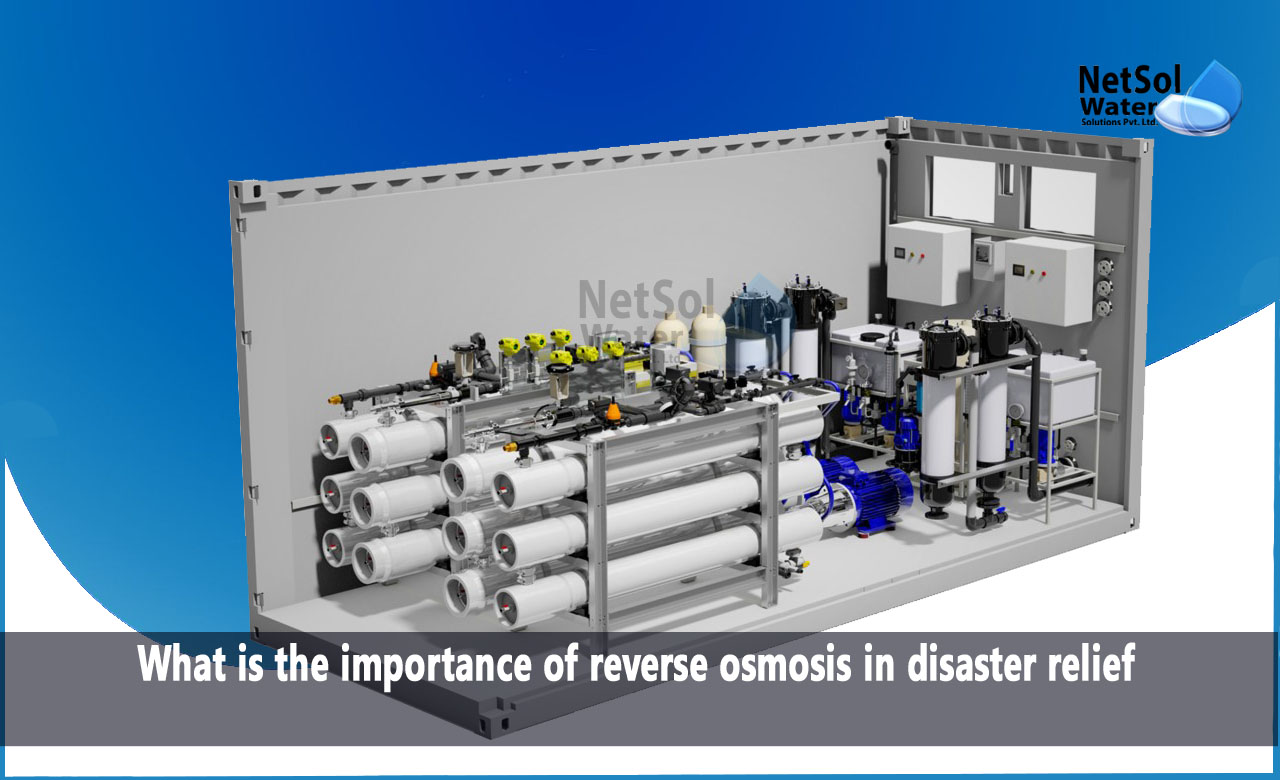What is the importance of reverse osmosis in disaster relief?
In the aftermath of a natural disaster or humanitarian crisis, access to clean and safe water becomes a critical necessity. Disrupted infrastructure and contaminated water sources pose significant challenges in ensuring the well-being and health of affected populations. Reverse osmosis (RO) technology has emerged as a vital tool in disaster relief efforts, offering a reliable and efficient method for providing clean water in emergency situations. In this blog, we will explore the importance of reverse osmosis in disaster relief and its role in delivering safe water to affected communities.
1. Water Challenges in Disaster Zones:
Natural disasters such as hurricanes, earthquakes, floods, and droughts can cause severe damage to water infrastructure and contaminate existing water sources. The resulting lack of clean water poses immediate health risks, including the spread of waterborne diseases, dehydration, and compromised sanitation. Rapid response and effective water treatment are crucial to mitigate the impact on affected populations.
2. The Role of Reverse Osmosis in Disaster Relief:
Reverse osmosis plays a pivotal role in disaster relief efforts by providing on-site water treatment solutions. RO systems are capable of removing a wide range of contaminants, including bacteria, viruses, chemicals, and heavy metals, from water sources. With their compact size, portability, and rapid deployment capabilities, reverse osmosis units can quickly establish clean water access points in affected areas, ensuring safe drinking water for communities in need.
3. Benefits of Reverse Osmosis in Disaster Relief:
a) Rapid Deployment: Reverse osmosis systems designed for disaster relief can be rapidly deployed and set up in affected areas. Their compact and portable nature allows for quick installation, enabling immediate access to clean water.
b) Water Treatment Efficiency: Reverse osmosis is a highly effective water treatment technology, capable of removing up to 99% of contaminants, including pathogens, chemicals, and suspended solids. This ensures that the treated water meets safety standards and reduces the risk of waterborne diseases.
c) Versatility in Water Sources: RO systems can be used to treat various water sources encountered in disaster zones, including surface water, groundwater, and brackish water. This versatility enables relief organizations to adapt to the available water resources and provide suitable treatment solutions accordingly.
d) Scalability: Reverse osmosis systems can be scaled up or down to meet the water demand of affected populations. From small-scale portable units for immediate needs to larger, containerized systems for community-wide water supply, RO technology offers flexibility in addressing different levels of water requirements.
4. Considerations for Implementing Reverse Osmosis in Disaster Relief:
a) Water Source Assessment: Assessing the quality and characteristics of available water sources is crucial for determining the appropriate pretreatment processes and system design. In disaster situations, water sources may be heavily contaminated, requiring adequate pretreatment measures to ensure the optimal performance of reverse osmosis systems.
b) Logistics and Supply Chain: Ensuring the availability of necessary equipment, spare parts, and consumables is essential for the sustainable operation of RO systems in disaster zones. Efficient logistics and a robust supply chain management system are crucial to maintaining a continuous supply of clean water.
c) Capacity Building and Training: Proper training and capacity-building programs for local personnel and volunteers involved in water treatment operations are vital. This ensures the effective operation, maintenance, and troubleshooting of reverse osmosis systems, promoting the long-term sustainability of clean water supply in disaster-affected areas.
Conclusion:
Reverse osmosis technology plays a vital role in providing clean and safe water in disaster relief efforts. Its rapid deployment, water treatment efficiency, versatility in water sources, and scalability make it an indispensable tool for ensuring access to clean water in emergency situations. By harnessing the power of reverse osmosis, humanitarian organizations and relief agencies can significantly improve the health, well-being, and resilience of communities affected by disasters, providing them with a lifeline during times of crisis.
Netsol Water is Greater Noida-based leading water & wastewater treatment plant manufacturer. We are industry's most demanding company based on client review and work quality. We are known as best commercial RO plant manufacturers, industrial RO plant manufacturer, sewage treatment plant manufacturer, Water Softener Plant Manufacturers and effluent treatment plant manufacturers. Apart from this 24x7 customer support is our USP. Call on +91-9650608473, or write us at enquiry@netsolwater.com for any support, inquiry or product-purchase related query.



